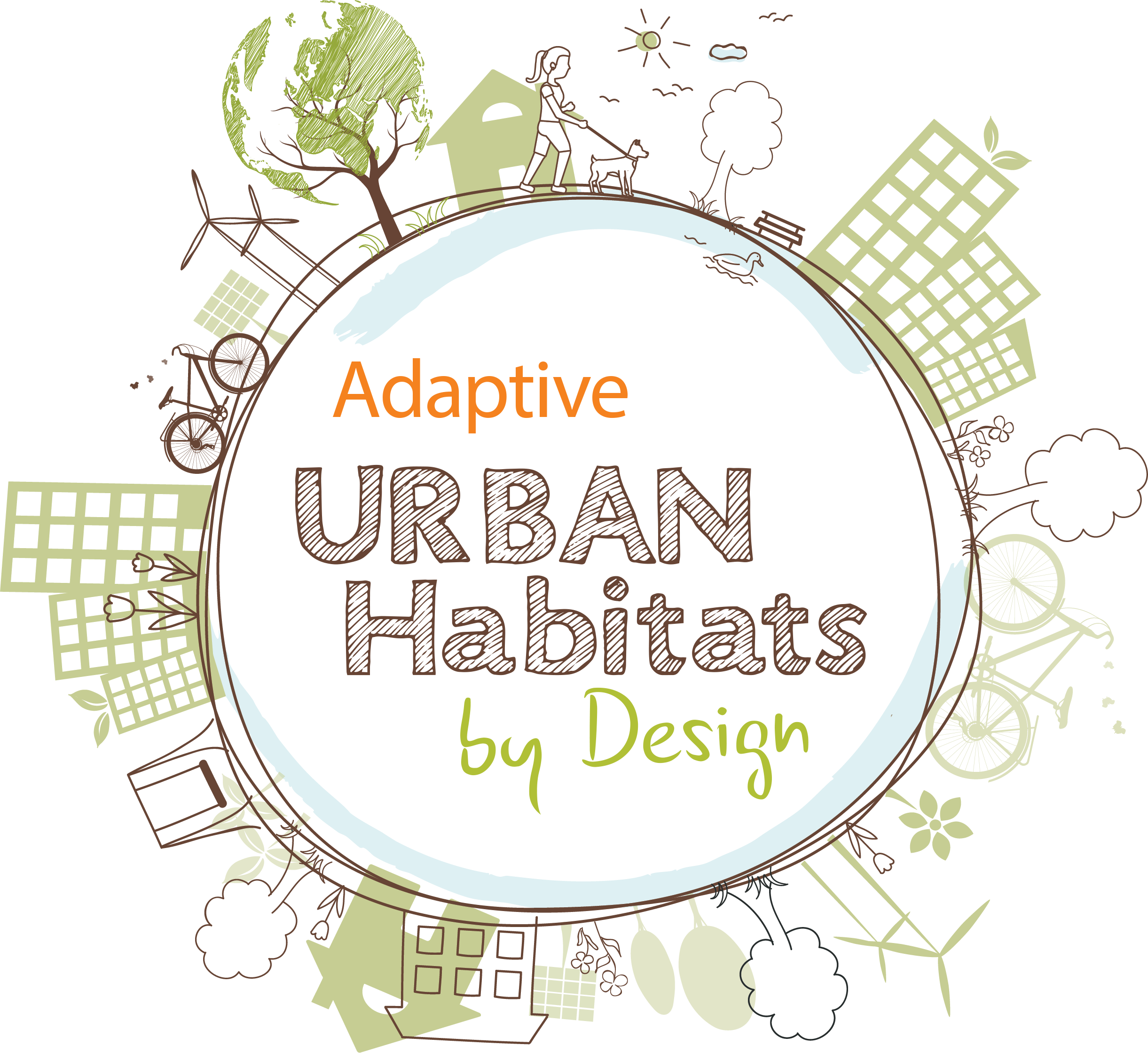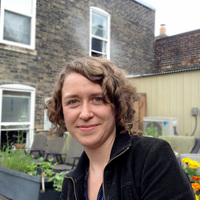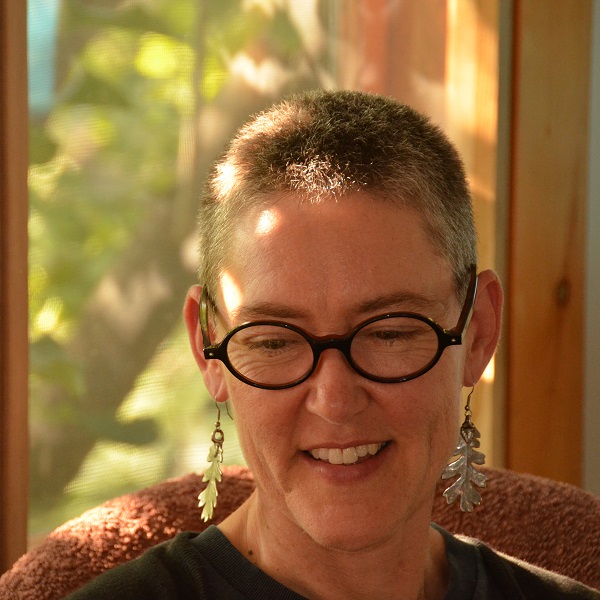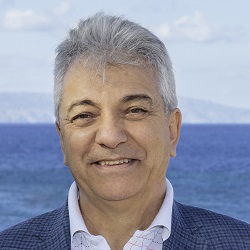 2018 Ontario Climate Symposium
2018 Ontario Climate Symposium
Greening the Grey: Climate Change and the Future of Urban Development
Back to the 2018 Ontario Climate Symposium Program
TRACK 3
Thursday, October 11, 2018
10:00 am to 12:00 pm | Room 190
As urban development within cities continues to grow in an effort to meet the needs of a rising population, the challenging question we will continue to face is: Are our cities prepared for climate change — and what role can green infrastructure play in mitigating the impacts of a changing climate?
This panel will discuss these and other questions, to investigate the benefits of green infrastructure in urban areas. We will look at examples from nature, from historical neighbourhoods, and from urban developments in Ontario. Panelists will also discuss the role artists play in engaging the community in greening infrastructure.
MODERATOR
Usman Khan | Assistant Professor, York University
 Dr. Usman T Khan is an Assistant Professor in Civil Engineering at the Lassonde School of Engineering, York University and the Chair of the President’s Sustainability Council. His research interests lie in Water Resources Engineering, focusing on urban hydrology, including flood risk assessment and uncertainty analysis, sustainable water resource management and infrastructure and the impacts of climate change on these systems.
Dr. Usman T Khan is an Assistant Professor in Civil Engineering at the Lassonde School of Engineering, York University and the Chair of the President’s Sustainability Council. His research interests lie in Water Resources Engineering, focusing on urban hydrology, including flood risk assessment and uncertainty analysis, sustainable water resource management and infrastructure and the impacts of climate change on these systems.
Dr. Khan received his B.Sc. and M.Sc. from the University of Calgary. His undergraduate project focused on designing a net zero water use building on a university campus. For his M.Sc. research, he tested the efficacy of bioretention cells, a type of sustainable stormwater management technology. Dr. Khan was awarded a PhD from the University of Victoria; his research contributions included designing new big-data based techniques to improve water quality and quantity analysis in urban areas.
He has won a number of national awards for his research and teaching, including NSERC awards for his M.Sc, PhD and postdoctoral work and recently an Andy Farquharson Teaching Excellence Award. In addition to this, Dr. Khan has worked with municipal governments, providing his expertise to a number of stormwater, watershed management and urban hydrology projects.
The role of Civil Engineering in creating vibrant, livable and sustainable cities is a strong motivator for Dr. Khan. He is committed to using his professional practice to meet the challenges that face the urban environment.
PANELISTS
Alice Dixon | Infrastructure Ontario
 Alice Dixon is a sustainability analyst with Infrastructure Ontario. She holds a master’s degree in environmental studies and planning from York University, and studied urban water planning at Delft University of Technology, Netherlands.
Alice Dixon is a sustainability analyst with Infrastructure Ontario. She holds a master’s degree in environmental studies and planning from York University, and studied urban water planning at Delft University of Technology, Netherlands.
She has written for TREC on renewable energy in Canada, and Spacing magazine on green infrastructure.
Lorraine Johnson | Author
 Lorraine Johnson is the author of numerous books on habitat gardening with native plants, urban agriculture and environmental issues, such as Tending the Earth: A Gardener’s Manifesto, City Farmer and Green Future.
Lorraine Johnson is the author of numerous books on habitat gardening with native plants, urban agriculture and environmental issues, such as Tending the Earth: A Gardener’s Manifesto, City Farmer and Green Future.
She is the editor of Ground: Landscape Architect Quarterly, and active in the community gardening movement, urban forest advocacy, and the effort to legalize backyard hens in Toronto.
Ian Roul | GeoProcess Research Associates
 Ian has been working in the field of ecological consulting and restoration since 1999. His experience is focused on terrestrial and wetland ecology, ecological planning, environmental impact studies and environmental assessments. Ian has developed numerous mitigation and restoration plans for residential projects, road and highways, and linear infrastructure.
Ian has been working in the field of ecological consulting and restoration since 1999. His experience is focused on terrestrial and wetland ecology, ecological planning, environmental impact studies and environmental assessments. Ian has developed numerous mitigation and restoration plans for residential projects, road and highways, and linear infrastructure.
Recently Ian has presented at academic conferences on the subject of low impact development and hydrological connections between development and natural systems. He has been a speaker at workshops presented by the Ontario Professional Planning Institute to discuss low impact development and ecology.
Ian is a recognized expert witness in the field of wetlands and ecological planning before the Ontario Municipal Board. Additionally, he has presented at academic conferences on wetland restoration and hydrology.
Ian has a M.Sc. in plant biology from Laval University and a B.Sc. in physical geography from McMaster University. He completed the certification in Ecosystem Restoration from Niagara College and recently became certified as an Envision Sustainability Profession.
Michelle Sawka | Green Infrastructure Ontario Coalition
 Michelle is a program manager for Toronto and Region Conservation Authority (TRCA), where she manages the Green Infrastructure Ontario Coalition. In this role she coordinates the coalition’s research, advocacy and communications, and works to increase green infrastructure awareness across the province.
Michelle is a program manager for Toronto and Region Conservation Authority (TRCA), where she manages the Green Infrastructure Ontario Coalition. In this role she coordinates the coalition’s research, advocacy and communications, and works to increase green infrastructure awareness across the province.
Her past experience was in a more traditional infrastructure role, where she was an urban transportation policy analyst and managed research in support of public transit agencies across.
Ioannis Tsanis | Technical University of Crete & York University
 Dr. Ioannis Tsanis is a Professor in the School of Environmental Engineering at Technical University of Crete (TUC), a Professor Emeritus in the Department of Civil Engineering at McMaster University, an Adjunct Professor at York University and an Associate Fellow Member of Climate Service Center, Germany.
Dr. Ioannis Tsanis is a Professor in the School of Environmental Engineering at Technical University of Crete (TUC), a Professor Emeritus in the Department of Civil Engineering at McMaster University, an Adjunct Professor at York University and an Associate Fellow Member of Climate Service Center, Germany.
He is currently participating in several research projects studying the impact of climate change on water resources, extreme events (floods and droughts), ecosystem tipping points, soil degradation, agriculture, tourism and energy.
David Waverman | Stantec
 David Waverman is a senior landscape architect and cultural heritage landscape specialist with more than 30 years of design and construction experience.
David Waverman is a senior landscape architect and cultural heritage landscape specialist with more than 30 years of design and construction experience.
David’s work in the field of cultural heritage landscape architecture includes: site research, natural and cultural inventory, visual impact assessment, heritage impact assessment, mitigation, conservation strategies and restoration/enhancement landscape design.
Heather Whitehouse | Savanta
 Heather Whitehouse is Senior Ecologist, Project Director with Savanta. She has 13 years of experience in natural habitat design, construction and monitoring.
Heather Whitehouse is Senior Ecologist, Project Director with Savanta. She has 13 years of experience in natural habitat design, construction and monitoring.
Climate change resilience, enhancing local biodiversity, and connecting people with nature are key elements in her design. Heather creates urban ecological habitats where residents can engage and foster a relationship with nature, and in the process become stewards through ecological monitoring and maintenance.
